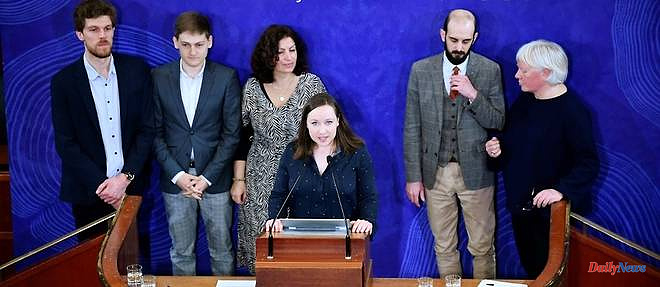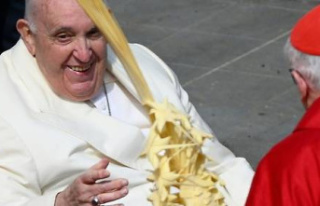Will euthanasia become possible in France? After having brought together French people drawn by lot for several months, the Citizens' Convention mainly declared itself to open "active assistance in dying", but on important conditions. The Head of State must indicate on Monday the follow-up he intends to give to this reflection.
"For a majority of citizens of the Convention, access to active assistance in dying must be open", says the report validated on Sunday by the participants.
But this position, which covers the opening of euthanasia and assisted suicide, includes "many nuances", warns the Convention which has now concluded its debates.
Since December, the latter have brought together 184 French people drawn by lot. The aim was to assess, at the call of the government, the current end-of-life framework in France and the need to make changes.
Debates on the subject resumed at the initiative of President Emmanuel Macron.
The Head of State has been planning for a long time to modify the current legislation, fixed by the Claeys-Leonetti law of 2016. This allows caregivers to irreversibly sedate patients near death, whose case is hopeless and the suffering is intolerable.
But it does not go so far as to authorize "active assistance in dying", that is to say assisted suicide or an act of euthanasia.
An advisory body, the Ethics Committee (CCNE), paved the way for such a development, in September, by deeming it possible - under many conditions - to legalize this active assistance in dying.
In the end, it's a "yes, but" to assisted suicide and euthanasia, along with many recommendations to better develop palliative care.
The Convention confirms that its participants are three-quarters in favor of opening up active assistance in dying, but with important safeguards.
According to them, there cannot be such an act without the patient having previously benefited from in-depth support, and being able to express his will at any time.
"The discernment of the person is an essential condition", insists the report. What to do when a patient is no longer able to say what their choice is?
On this subject, in the absence of a majority position, the Convention does not decide. Likewise on a very sensitive aspect: the opening of euthanasia or assisted suicide to minors.
Emmanuel Macron, who receives the members of the Convention at the Elysee Palace on Monday morning, will "draw the conclusions of this work and trace the paths of an Act II in this national debate", specified the presidency on Sunday.
Concretely, the Head of State could announce the use of a new law to change the system, the way of the referendum not being in principle open for this type of societal questions, according to the Constitution.
Regarding minors and discernment, "we can see that these are two very blocking subjects and therefore there is not necessarily an interest in going further in this area", also notes a presidential adviser.
The president, who received several personalities - religious, doctors, intellectuals - at dinner in early March to discuss the subject, for his part did not reveal anything about his personal convictions.
"From the start there was the deep conviction that this work could not lead to the conclusion which would be that of a single man but rather a collective work", underlines the Elysée.
In parallel with the Convention, the government has initiated its own work of reflection under the aegis of the Minister Delegate for Health, Agnès Firmin Le Bodo, and that in charge of Democratic Renewal, Olivier Véran
In the midst of a political crisis on pensions, the presidency hailed the "unprecedented in vivo experience" of the Convention, which it aims to make a "model of citizen participation" in Europe.
We must manage, "while having a representative democracy, with a Parliament, to introduce this kind of democratic oxygen which makes it possible to deal with questions for which there is no need to polarize society", sketched the presidential adviser .
The government, which had been criticized for having largely neglected the conclusions of a previous convention on the climate, nevertheless warned several times that it would not resume as such those on the end of life.
04/02/2023 18:14:40 - Paris (AFP) - © 2023 AFP












